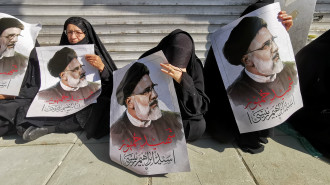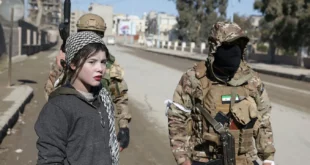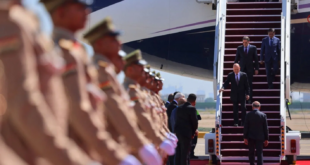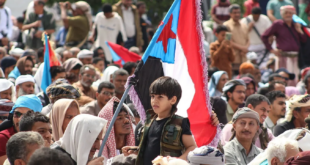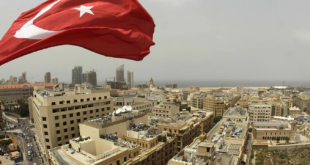Analysis: Upcoming elections and the succession race for Supreme Leader could deepen infighting among Iran’s conservative political camp.
Iranian President Ebrahim Raisi, 63, died in a helicopter crash in the north-western province of East Azerbaijan province on 19 May, along with Foreign Minister Hossein Amir-Abdollahian and six others.
To demonstrate the Islamic Republic of Iran’s ability to handle any crisis, Supreme Leader Ali Khamenei declared five days of national mourning and appointed First Vice President Mohammad Mokhber as interim president, with the country expected to hold early presidential elections on 28 June.
However, despite the appearance of smooth institutional procedures, Raisi’s death has disrupted the Iranian establishment’s long-term plans, as the hardline cleric was widely considered Khamenei’s eventual successor.
As a result, infighting and increased competition to secure power in the upcoming elections, as well as to determine the next Supreme Leader, has emerged within the Iranian conservative camp.
Iran’s conservative camp
The conservative camp, known as principalists in Iran, consists of supporters of the Supreme Leader of Iran and advocates for preserving the ideological principles of the Islamic Revolution.
The 2021 presidential elections, which resulted in Raisi’s victory, further consolidated the principalist camp at the expense of the reformists, who advocate for political and social reforms within the existing framework of the Islamic Republic of Iran and have become increasingly marginalised.
Ali Vaez, Iran Project Director at International Crisis Group, told The New Arab that the political space in Iran has been continuously shrinking, with dissenters not aligned with the Supreme Leader’s vision being sidelined.
"The death of Raisi has been a blow to the plans of the Supreme Leader as he was being groomed as his successor, and this does open the door for even further consolidation of hardliners and regime loyalists" “We’ve ended up with a situation in which every election since 2021 has been an intra-conservative affair, and the upcoming presidential election is going to be an intra-conservative affair. It’s going to splinter the conservative camp even further, and it’s going to deepen the infighting,” he said.
As a result of candidate disqualifications operated by the Guardian Council, manipulation, rigging, and low turnout, Khamenei was able to orchestrate the consolidation of hardline power in 2021, as highlighted by Eric Lob, an associate professor in the Department of Politics and International Relations at Florida International University.
“The death of Raisi has been a blow to the plans of the Supreme Leader as he was being groomed as his successor, and this does open the door for even further consolidation of hardliners and regime loyalists in Iranian institutions, with some manoeuvring for potential political infighting for competition over who could take over the mantle as successor,” he told TNA.
Vaez explained that the principalist camp is generally divided into three major factions. Firstly, there are the traditional principalists, such as former Speaker of the Parliament Ali Larijani, current Speaker of Parliament Mohammad Baqer Qalibaf, and to some extent, former President Hassan Rouhani, who have long been loyal to the system but are no longer fully trusted due to their perceived lack of subservience compared to Raisi.
Secondly, there is the radical principalist faction, also known as Jebhe Paydari (Steadfast Front). This faction supported former national security adviser and Iran’s nuclear negotiator Saeed Jalili in his presidential run in 2013 and Raisi’s in 2021. They have penetrated many institutions in the Raisi administration and wield significant power.
Lastly, there’s the new generation of revolutionaries who don’t have fixed allegiance to the conservative camp and lack a track record or fixed views. Among these is Minister of Roads and Urban Development Mehrdad Bazrpash.
“There is no difference between these groups in terms of their adherence to the Supreme Leader’s vision. The main difference lies in tactics,” Vaez said.
Traditional conservatives adopt a tempered approach to foreign and domestic policies, whereas the Paydari faction is notably more hardline in both arenas. The younger generation’s views on tactical approaches are flexible due to their limited track record.
Mahdi Ghodsi, an economist at the Vienna Institute for International Economic Studies, told TNA that the Islamic Republic functions as an extractive political institution, where a select few determine the political will of an entire society.
These leaders maintain control by distributing economic benefits to loyalists, turning it into an extractive economic system. Over the past year, internal conflicts have escalated, with factions exposing instances of corruption and embezzlement. Therefore, there is fierce competition among them, with some even resorting to violence and imprisonment to secure power at the highest levels.
“This system involves selling national resources like oil and allocating high-ranking positions in public and semi-public companies to loyalists, whose economy comprises 70-80% of the GDP. Consequently, the majority of economic resources end up in the hands of loyalists, who then distribute them among public employees and contractors, reinforcing their power,” Ghodsi said.
"The upcoming presidential election is going to be an intra-conservative affair. It's going to splinter the conservative camp even further and it's going to deepen the infighting" Sina Toossi, a senior fellow at the Center for International Policy, told TNA that although Khamenei has attempted to manage conservative divisions by encouraging cooperation, they still persist.
For instance, the recent Iranian parliamentary elections witnessed hardliners securing significant wins over traditional conservatives, sparking public disputes, especially between MP-elect Hamid Rasaee and conservative Parliament Speaker Mohammad Baqer Qalibaf, despite Khamenei’s warnings against fostering divisions.
“Khamenei aims for conservative unity to smoothly implement his agenda, sidelining reformists. Despite divisions, loyalty to Khamenei prevails. Raisi’s successor is expected to consolidate power similarly, maximising influence over Khamenei’s eventual successor. The regime may allow moderate candidates but prioritises loyalty to ensure continuity in leadership,” Toossi said.
The next Supreme Leader
In this context, Raisi’s death will force principalists to start anew in their search for a successor to eventually replace Khamenei, although there is no shortage of options.
Vaez noted that the Iranian establishment was grooming Raisi as Khamenei’s successor because he was subservient and predictable. Finding a new president with these qualities – a cleric, loyal, and predictable – will be challenging. However, he believes the next president may be a layperson, while there are suitable potential clergy candidates for Khamenei’s succession, like within the Assembly of Experts.
One of the names circulating in the debate between factions over the potential succession of the current Supreme Leader, revived by the death of Raisi and the consequent reorganisation of political dynamics, is Mojtaba Khamenei, the second son of the incumbent Supreme Leader.
Ghodsi describes him as very influential and the mastermind behind anti-regime suppressions in the country, at least since the 2009 protests, with close links to Hossein Taeb, the former head of the Iranian Revolutionary Guard Corps (IRGC) Intelligence Service. Taeb reportedly also took control of the IRGC’s Basij, a paramilitary volunteer militia, despite not holding any official position in the country.
However, experts are divided on that name.
Vaez and Toossi note that Khamenei opposes his son’s succession to avoid contradicting revolutionary principles and that there’s little evidence that Mojtaba is a serious contender despite his influence, as he might wield more power behind the scenes.
Ghodsi suggests Khamenei might prefer his son to protect the family posthumously, and Mojtaba’s intelligence ties could make him a unifying candidate among principalist factions. However, Lob highlights internal power struggles and potential chaos, with principalists fearing a nepotistic succession could damage the regime’s legitimacy.
What is certain now is that succession will be the litmus test for the principalist factions and for the Islamic Republic itself, according to Toossi, as, despite the system’s high degree of institutionalisation, the supreme leadership is uniquely vital.
“The key challenge will be managing intense domestic political rivalries and widespread public discontent during the transition, whether to a single new leader or a council. This transition will reveal the resilience of the regime amid potential protests and political instability,” he said.
Lob explained that the upcoming presidential election may see increased manipulation, damaging the regime’s legitimacy and provoking societal backlash.
"The key challenge will be managing intense domestic political rivalries and widespread public discontent during the transition, whether to a single new leader or a council" “Reformists have lost public support due to perceived failures in delivering change since the 90s under former Iranian President Muhammad Khatami. Many moderates and reformists have been disqualified since 2021, undermined by regime pressures and the US maximum pressure campaign, which discredited efforts by former President Haasan Rouhani,” he said.
Toossi explained, “While conservatives can still mobilise their social base, the regime’s overall support is shrinking. Despite large crowds at Raisi’s events, the regime’s base has diminished. If the government remains insular, widespread protests and serious unrest are likely to continue”.
In terms of voter participation, Vaez argues that the low turnout is going to benefit the principalists.
“I expect the next election to be summarised by significant infighting in the conservative camp and significant political apathy among the electorate. As we saw in the parliamentary runoff elections held in early May, only 8% of Tehran’s population went to the polls. And the last three national elections have had record-low participation rates,” he said.
“All of that suggests very little interest in a non-competitive election, […] I think the next election is going to be an internal conservative affair.”
 Eurasia Press & News
Eurasia Press & News
